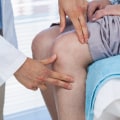As the body adapts to these changes, it's very common to feel pain in the lower back, as well as pain in the pelvis, groin, legs, and buttocks. As your pregnancy progresses, especially starting in the second trimester, you'll gain weight, putting additional strain on your joints. In addition, the growing abdomen pushes the center of gravity forward and stretches and weakens the abdominal muscles, which support the spine and back. Before taking medications for headaches, ask your doctor if it's safe to take them.
In addition to medications, relaxation techniques can help. Headaches may be a sign of preeclampsia (high blood pressure during pregnancy). If your headaches worsen and don't go away easily when you rest and take acetaminophen (Tylenol), especially toward the end of your pregnancy, tell your healthcare provider. As the uterus grows, it can put pressure on the nerves in the legs.
This may cause some numbness and tingling (a tingling sensation) in the legs and toes. This is normal and will go away after delivery (it may take a few weeks to months). Most of these types of pain peak toward the end of pregnancy, in the third trimester. However, abdominal and pelvic pain can appear quite early, in the first and second trimesters, as muscles and ligaments move and stretch to adapt to the growing uterus.
This is sometimes called round ligament pain. As your uterus expands, you may feel aches and pains in your back, abdomen, groin area, and thighs. Many women also have backaches and pain near the pelvic bone due to pressure on the baby's head, weight gain, and joint strain. Some pregnant women complain of pain that extends from the lower back to the back of a leg and reaches the knee or the foot.
This is called sciatica. Flu-like body aches early in pregnancy and later are common. Early in pregnancy, you may blame hormonal changes for the additional discomfort. Later on, growing uterus and changes in the body can aggravate pain. It can help to find ways to support a pregnant woman's body, such as using a body pillow at night and wearing a bra that fits well.
As long as the pain is not severe or accompanied by other symptoms of the disease, such as fever, you don't have to worry. On the other hand, pregnancy cramps are usually milder and may look like a pulling or tingling sensation. It's worth noting that while some aches and pains are common early in pregnancy, persistent and severe pain is an indication that you need medical attention.






